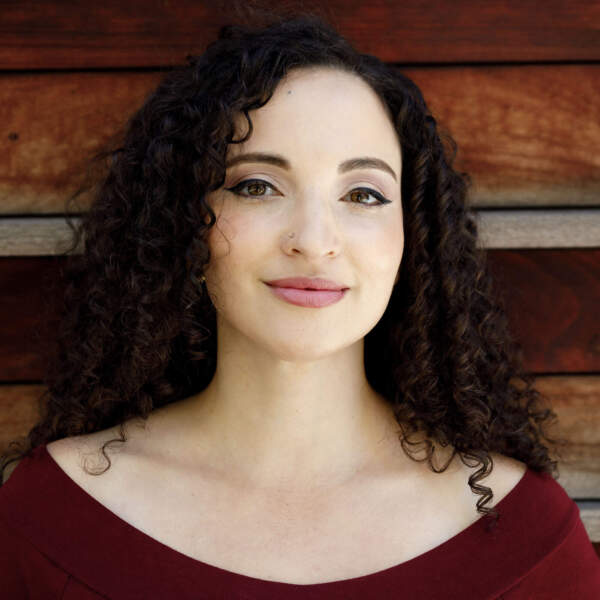Advertisement
BioBoom
This Biotech Unicorn Hopes To Revolutionize Drug Making, But It Has Its Skeptics
ResumeWhen it comes to understanding the Greater Boston biotech scene, there's one company you should definitely know about: Moderna Therapeutics.
The company has raised almost $2 billion since its founding in 2010, an unusually high amount for a biotech startup. But investors think the company holds a lot of promise — a new technology that could revolutionize thousands of medicines.
We sat down with STAT News' Damian Garde, who's reported extensively on Moderna, to talk more about it. This transcript has been lightly edited.
Bob Oakes: Tell us more about how this new technology is supposed to work.
The basic idea is to replicate something that already happens in the body but do it to treat disease. In nature, mRNA is the way the body communicates to its many cells and what it wants them to do. The proteins it wants them to produce, which are necessary to every bodily function.
What Moderna is doing is crafting its own synthetic mRNA that can give custom instruction to those cells to create protein of any type. The theory there is if you do that, you transform the body into little drug factories and you've disrupted the whole drug industry.
You can listen to CEO Stephane Bancel, who spoke at a TedX talk in 2016:
[T]he big problem with the pharmaceutical industry is that it’s a trial and error business. They try millions of things for one thing to get approved. We think a much better way to do is to, using the software of life, using messenger RNA, is to design the right protein so you can be cured once and for all.
If that works, it would save time, it would save money, and it would change the way the drug business works.
Where is Moderna in this quest to unlock this new technology?
There have been problems turning that synthetic mRNA into a drug and it has to do with safety. Whenever Moderna has given enough mRNA to create those proteins in the cells that we're talking about, it's proven to be too toxic to test in human clinical trials. Whenever they give little enough to avoid safety issues, it doesn't generate the right amount of protein for an effective drug.
Have they found any success?
Where mRNA is a little easier to actualize is in the field of vaccines. There, the immune system reaction that you get that was limiting the drug work is actually what you want. If I give you a flu vaccine, I want your immune system to attack it and learn about the flu and theoretically, you won't get it. Moderna does have human clinical trials running of mRNA-based vaccines for various infectious diseases.
But that's not exactly what investors wanted.
Exactly. Vaccines are public health goods. They're bought in batches by governments often in the developing world. They're not the kinds of things you can charge six figures for.
Are investors worried they're hearing an echo of the Theranos scandal here that might have them on edge? Have you seen warning signs from Moderna that there are reasons to be skeptical?
Having spoken with a lot of Moderna employees, even those who are skeptical of the future of the company, they almost all say, "This isn't Theranos. There is some real science here."
The issue is that the story and the hype may have outpaced the realities of that science. They now have a valuation of around $7 billion, which is quite a bit of money. For investors, the concern is, can you get a return on investment when a company is already valued so high? How can it go up from here?
Is the company expected to go public?
The answer has mutated over time. Now the conventional wisdom of people I talk to is 2019, but we've hear this before.
Are investors still putting money in this company?
They are. They raised $125 million in May, so there are sophisticated investors who believe despite Moderna's struggles, it really is on to something and some day this will come to fruition.
This article was originally published on June 06, 2018.
This segment aired on June 6, 2018.

